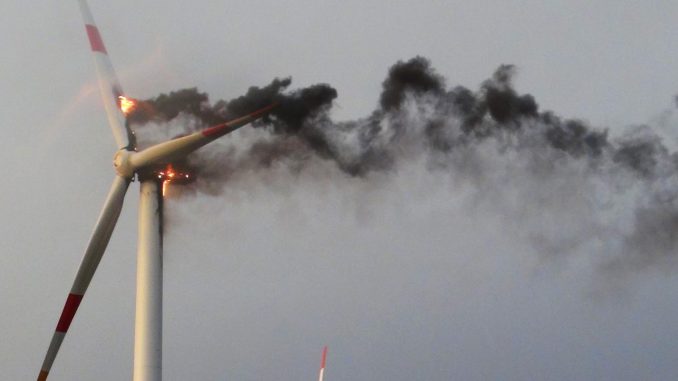
Kansas legislators are considering a bill that could end the scourge of commercial wind farms in Kansas forever. Let’s hope they do it before time runs out this session.
Finally, Kansas lawmakers took decisive action on the disastrous co-opting of public policy that turned the wind industry from simply an idea that made no sense into a modern day financial and environmental cancer – that still makes no sense.
Senate Bill 279 won’t bring back the housing values for those homeowners down in Bourbon County who lost so much of their investment when county commissioners there threw them under the bus a few years back by approving the Jayhawk Wind project. It won’t bring back the marketability of those small rural acreages on which folks in Reno County hoped to build their dream homes – a little land, a couple horses and a dazzling Kansas sunrise and sunset are no longer selling points there.
How dare those people expect to enjoy a Kansas vista for their homesites unobstructed by a 30,000 acre power plant?
And Kansas Legislators won’t be able to stop the immense sucking of unpaid taxes by the projects already standing in Kansas. They can’t stop those high-dollar federal tax coupons already flowing to wind companies from Houston, Dallas, New York, Los Angeles – even Germany – courtesy of property owners in rural Kansas and all over the rural areas of the country who watched their home values destroyed and their lands ruined by turbine fields. Senate Bill 279 won’t magically make these multi-million investments pay local property taxes either – from which they’re exempt due to environmental lobbyist efforts an other legislators who wouldn’t stand up to them.
Most of all, the bill won’t make wind turbines produce electricity when the wind doesn’t blow. It won’t bring back the lives of those 111 Texans who froze to death last month during the central plains Coldpocalypse, when public planners who should be criminally charged fluffed the wind industry and decommissioned perfectly good coal and gas electric plants to try to prove how green and hip Texas was. But when the turbines froze up and natural gas was restricted due to mechanical failures, guess what – there wasn’t enough firm power to fall back on.
It isn’t like public policy makers across the U.S. haven’t been warned for the last decade about reliance on wind farms; they just stupidly took the bait laid out in fat income tax credits all paid in the end by borrowed money. Wind companies preyed on rural areas with no zoning plans; folks who were naively content to believe their neighbors would never do anything to destroy their home values and the beautiful rural vistas they shared. In Texas it was catastrophic. Wind companies lied, people died.
The bill presently in the Kansas Senate’s Utilities Committee won’t right the wrongs already done by the wind industry, by negligent county commissioners in those counties and even by turbine site landowners greedy enough to sell out their neighbors and their communities. What it will do is put the brakes on an industry and public officials that, if left unchecked, will continue to deny science and indulge their gluttonous pursuit of profits to destroy every landscape in Kansas where even a trickle of wind blows.
The bill in essence only demands bare accountability from wind farms to give notice of their plans to communities and offer them some protections. It forces companies to notify the public of a site plan in an area and to advise prospective site lessors to consult an attorney regarding their obligations set forth in the lease. It requires a one-mile setback of a turbine site from any non-participating property and a mile and a half for any occupied dwelling or structure.
At first glance SB 279 only provides protections one would expect for residents anywhere who are having a power plant foisted upon their neighborhood, yet the language of the bill is terror to the wind industry.
Leaders in Kansas took special steps to stave off the perils of Covid-19, and they should likewise take this step to thwart the rural pandemic of wind farms.
– Dane Hicks, is the publisher of The Anderson County Review in Garnett, Kan.
